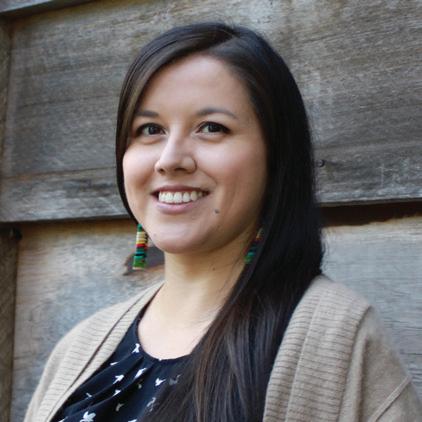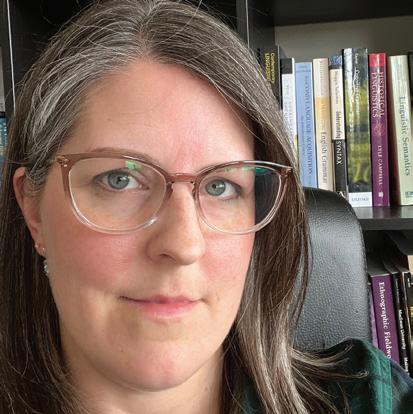
3 minute read
Sessional Reflections
Alexa Manuel

Advertisement
When I was asked last term if I was interested in teaching FNIS 300: First Nations Writing, I must admit that I wasn’t sure I could do it. I knew it would require a lot of work – writing is a lot of work. But I’m so glad I did, because it was such a rewarding experience to get to read so many amazing pieces of writing by students, and to see the ways their minds work.
I used to think I knew what kind of a teacher I would be, but the more classes I teach the more I realize the importance of being flexible and adapting to changing environments. Early in the semester, it felt like every other person I knew was getting sick with COVID. I found myself worrying. I realized that everyone around me was going through the same thing, worrying about their loved ones and about themselves. School doesn’t feel so important when we are living through the ongoing trauma of pandemics, and that’s completely normal.
When we talk about decolonizing the classroom, I think a large part of that work needs to be about recognizing that we are not just students, or researchers – we are human beings, seeking to learn about our world and about each other. Our relationship to the land and to each other comes first, our obligations to the academy come after. So take care of yourself first, so you can take care of the rest. Limlimt for the wonderful semester!
Rachel McGraw

Rachel McGraw is a settler scholar based on Treaty Six territory. She is a PhD Candidate in Linguistics at the University of Alberta.
This year I taught two online linguistics courses in the First Nations and Endangered Languages program: FNEL 281 Sounds of Endangered Languages and FNEL 282 Structures of Endangered Languages. It is in the spirit of giving thanks that I reflect on these past eight months teaching in the Institute for Critical Indigenous Studies.
I give thanks first to the students, who actively contributed their energy and intellectual resources to our meetings. I am amazed at the quality and depth of the original linguistic analysis and creation of original language resources completed by students. Together, both Indigenous and settler students applied linguistic concepts and tools to further their own and others’ language reclamation goals. We reflected on the role of language and linguistics in cultural reclamation and social reconciliation more broadly, considering how we can apply these lessons in our daily lives. Through their vulnerability, students often challenged me and each other to develop our reflexive teaching and learning practice. The intimacy of our class meetings is a gift that I will carry with me going forward.
I also give thanks to the Institute for Critical Indigenous Studies. I am grateful and honored to contribute to this dynamic program and make a difference in students’ lives.
Finally, I give thanks to the Creator, who has blessed me immeasurably through this experience. I have both been encouraged to grow through challenges, and been rewarded with the profound beauty of the relationships developed in these classes. I am grateful.



